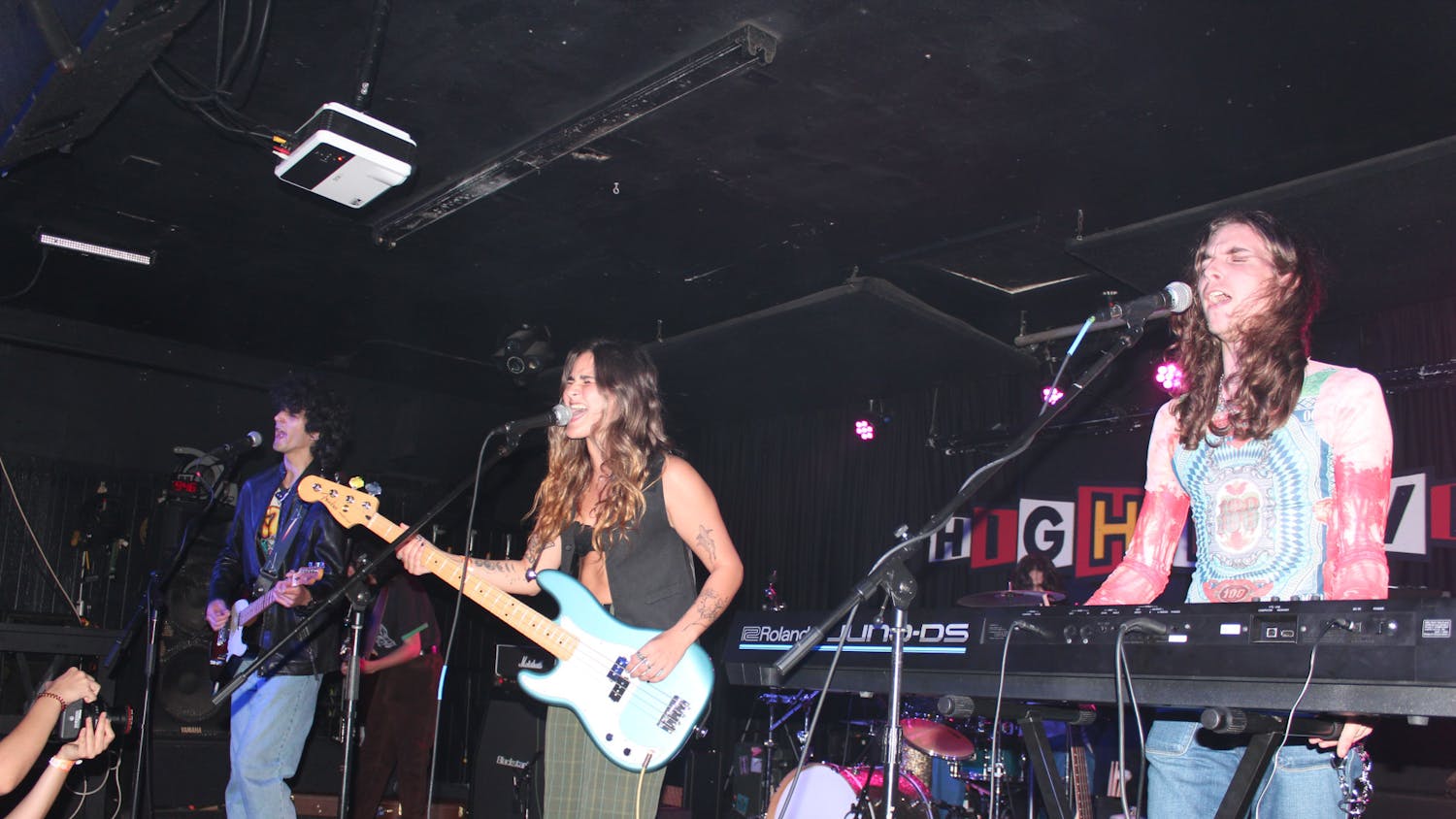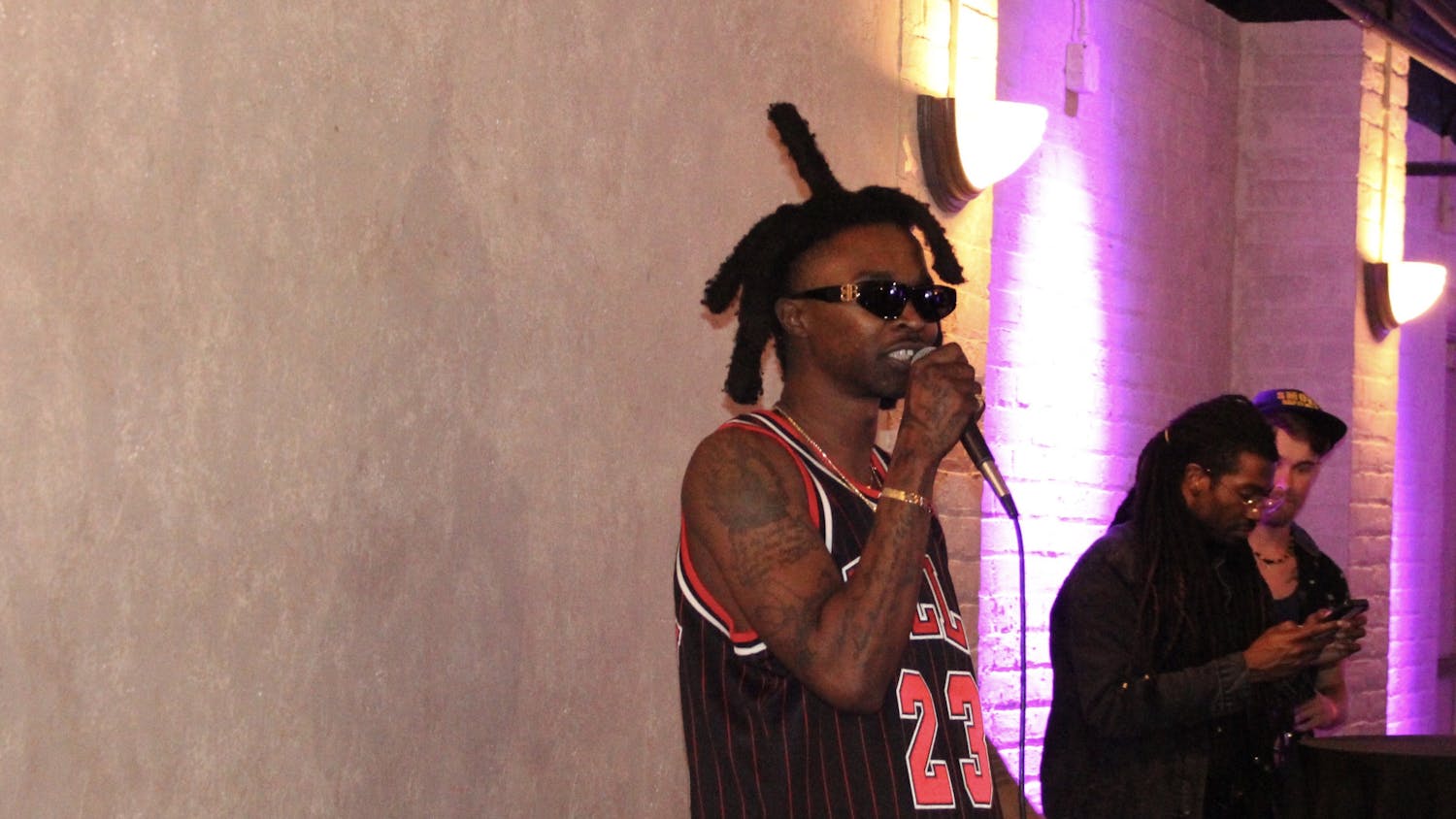The beginning of 2011 has signaled almost no signs of positive things to come for the future of the music business. The hope generated from bloated 2010 sales has all but vanished, as Warner Music Group hired investment bank Goldman Sachs to search out potential buyers for the company.
The news came on Jan. 20, one of the more prominent announcements in a couple of months filled with similar negative proclamations for the future of the music industry.
Warner Music, one of the four major record companies, hired Goldman Sachs to investigate interested buyers after several offers to buy out the company flooded Warner's management, according to news reports.
The hope that came about from 2010 was, as expected, a fluke. Overall, music sales fell from 2009, but weren't as low as some experts feared.
However, a chunk of sales came about from the rejuvenated purchase of previously released records, as well as with the death of Michael Jackson and the re-release of The Beatles' catalog.
Warner isn't the only record company changing tactics in this gloomy era. In early January, Sony Corporation of America announced its intention to close a 50-year-old CD manufacturing plant in Pitman, N.J. The plant's closing hints toward the dim future of physical media.
While Sony will continue CD production at other U.S. locations, the decision comes along with several other negative reports concerning physical music.
The most consistent are those of ever-falling weekly record purchases. Although 2011 is still young, the record for lowest album sales for a No. 1 album has already been broken twice, according to Billboard.com.
The Billboard 200 Chart uses Nielsen SoundScan to track the top-selling albums every week, and SoundScan has been keeping track of the data since 1991.
On Jan. 11, Taylor Swift's "Speak Now" broke the record for lowest-selling No. 1 album of all time, selling about 53,000 copies. Swift's debut week, on the other hand, saw "Speak Now" sell more than 1 million copies.
Just one week later, the dubious record was broken again. Cake took the No. 1 spot on Jan. 18, selling about 44,000 copies of its latest album, "Showroom of Compassion," in its debut week.
To compare these tough times to the industry's past, consider pop group 'N Sync, a band that sold 2.42 million copies of "No Strings Attached" in its debut week in 2000.
In 2010, only 326.2 million albums were sold worldwide, the lowest yearly total in recorded history, according to SoundScan. Only 13 albums sold more than 1 million copies, and only one album, Eminem's "Recovery," sold more than 3 million.
Similarly, Eminem's "The Marshall Mathers LP" sold 7.9 million copies in 2000, and every top-10 sales record that year sold more than 3.8 million copies.
The bold theme that resounds in these data is that less people are buying music than ever before - something that could be accredited to the economy and the Internet. With the continued rise of digital music and peer-to-peer file sharing, more people can hear what they want for free.
Jamie Fink, a UF public relations freshman, said she only pays for the music she wants to hear most. An avid music listener, Fink said she couldn't imagine having to pay for all the music that interests her.
"When I'm really looking forward to a new album, I'll download it on iTunes," she said. "I only buy physical CDs from my favorite artists."
Fink said she usually downloads other music online to gauge how interested she is in a new album. She added that even when she likes a new release, she won't always buy it.
"Unfortunately, I can't always afford to buy all of the new music that I like," Fink said.
This mindset is common among several UF students.
UF political science senior Danny Ramos said he tends to listen to more underground, less well-known music.
"I usually will download music first to see if I like it," he said. "If I like it enough, then I'll buy it, but I don't feel like I'm taking anything away from an artist by trying it out first."
However, Ramos said he supports the struggling underground artists whose music he enjoys.
"If buying an album at a show from a band that I like helps them get through their tour a little
easier and provides me with endless hours of entertainment, that's how I legitimize buying music."
SoundScan has carefully documented the falling record sales seen in recent years. Last year, it reported that overall music sales fell by 2.4 percent. Digital purchases rose only by 1 percent.
But physical media fared far worse, as both new and older titles saw significant drops in purchases. New CD sales were down 16 percent in 2010 and purchases of previously released titles fell 23 percent.
Both of those categories saw double-digit drops in 2009, too.
Away from the mainstream radar, independent record labels have found new ways to stay afloat while music fans have become less likely to pay for music. Some of the results that indie labels have arrived at may be surprising.
Vincent Fiorello, owner of Gainesville-based independent record label Paper + Plastick, focuses on putting out quality music but the art that accompanies the music, as well.
"We already know people are going to get the music for free," Fiorello said, "but what we try to do is provide a special physical product for people who like the music."
The result? Limited production of exclusive 12-inch vinyl records.
Paper + Plastick commonly releases intricately designed, multi-colored 12-inch records. The records' artwork is oftentimes quite a sight to behold as well, with die-cut jackets and handmade packaging.
Fiorello said he uses the Internet to his advantage when releasing records, keeping in mind that people have probably already heard it for free.
"We put out good enough music that, when people hear it, they'll like it and want something more from that band," he said. "I want a casual listener to become a fan of the band and want ownership of something more than just the digital music, and that's where the vinyl comes in."
Fiorello added that major labels have been hurt much more by the Internet than by indie labels. While major labels use "machine-gun marketing," according to Fiorello, indie labels exemplify "sniper rifle marketing."
"A major label will just try to get its music out to every outlet and hope that people like it, which costs a lot of money. The indie labels target specific groups and are able to use the Internet to their advantage in that sense," Fiorello said.
Turning things around and using the Internet to his advantage has helped Fiorello and several other indie label owners stay afloat in a struggling economy. The unique and limited physical products have been the key to turning profits in the industry.
Fans, like Ramos, have responded well to that strategy.
"Having a vinyl record is something unique that brings a whole new experience to the music," Ramos said.
Plus, because of the limited and exclusive format, he said he feels like "part of an almost elite fan base who owns that band's music in that format."
The situation's underlying irony is that major labels, once dominant in the physical CD market, are now relying on digital purchases to stay afloat. Meanwhile, smaller labels that don't have the same manpower or resources as music giants have used a business technique that keeps physical media relevant.
At the end of the day, Fiorello said the key to success is adapting and moving forward.
"Maybe it's not what you thought you were going to be doing at first," he said, "but you do what you can to keep going."





